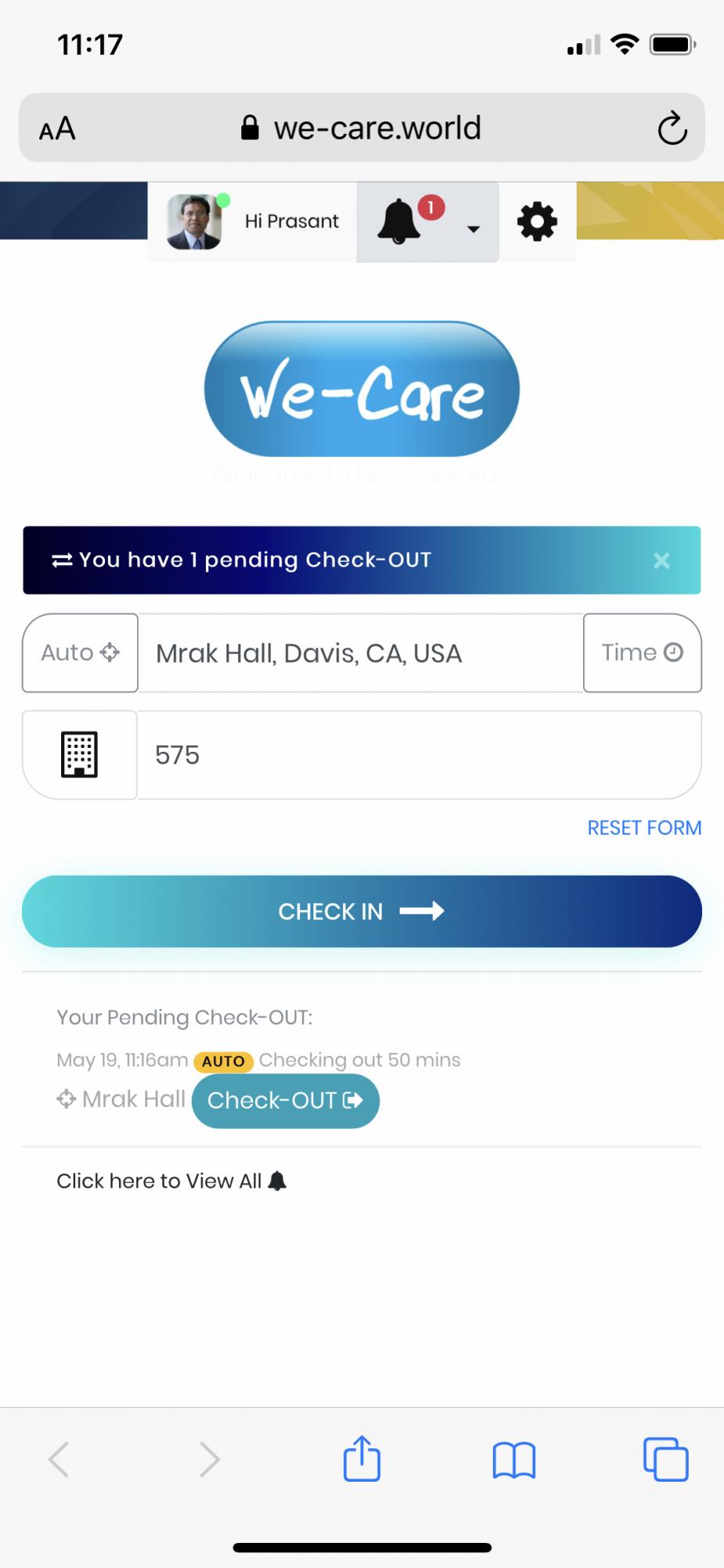Computer scientists at the University of California, Davis, have developed a web-based contact-tracing application. The app, We-Care, allows users to check in at specific locations and notifies them if someone reporting themselves as positive for COVID-19 checks in at the same location within a certain time window.
Until a vaccine is available and even beyond, contact tracing will play a key role in limiting the spread of the SARS-CoV-2 virus and allowing the economy to reopen. It is particularly important with COVID-19 since transmission can occur in carriers before symptoms appear.
In California, state officials have launched a statewide program to train and hire thousands of employees and volunteers to begin manual contact tracing. However, this is labor-intensive and costly — and to be effective, it must be done quickly.

Digital platforms for mobile devices have been developed but raise concerns about privacy. Contacts can be traced by physical location using GPS or proximity via Bluetooth exchange. Companies like Google and Apple have said they would ban the use of location tracking in contact-tracing apps and are working together to develop a cross-platform system to notify people who have been near others who have tested positive for COVID-19.
Web-based contact tracing
Prasant Mohapatra, vice chancellor for research and distinguished professor of computer science at UC Davis, and Vikram Rao, graduate student in the Department of Computer Science, developed We-Care as an alternative solution. The web-based contact-tracing application allows users to voluntarily check in to locations without sharing personal information with other devices.
“The idea evolved from discussions Vikram and I had related to a crowd-sourced air-quality monitoring tool during the devastating wildfire season in California last year,” said Mohapatra. “The current pandemic provided us an opportunity to materialize those unfinished ideas.”
We-Care is customizable and preserves different levels of privacy while leveraging crowd-sourced information exchanges. Unlike other app tracing tools, We-Care focuses on contacts within the frames of time and space. Devices are not tracked by any signaling protocols like cellular, GPS, Wi-Fi or Bluetooth.
Here is the sequence describing how the application works:
- Create a profile in the app. We-Care can be used anonymously.
- When entering any building, business, venue, restaurant, etc. — indoor or outdoor — you can “check in” by providing your location information.
- While leaving the venue, just click “check out.” The app can also check out automatically after a certain time.
- If and when you have symptoms, test positive or learn about being exposed to an infected person, you update your profile accordingly.
- You will receive an alert if the application receives any reports of potential exposure within the past seven days.
Like any crowd-sourced application, the accuracy and usefulness of this tool depends on the degree and information integrity of crowd collaboration.
The We-Care application can be used by organizations, communities, and health and government agencies to manage and aid contact tracing efforts.
Media Resources
Prasant Mohapatra, Office of Research, 530-574-6372, pmohapatra@ucdavis.edu
Andy Fell, News and Media Relations, 530-752-4533, ahfell@ucdavis.edu
